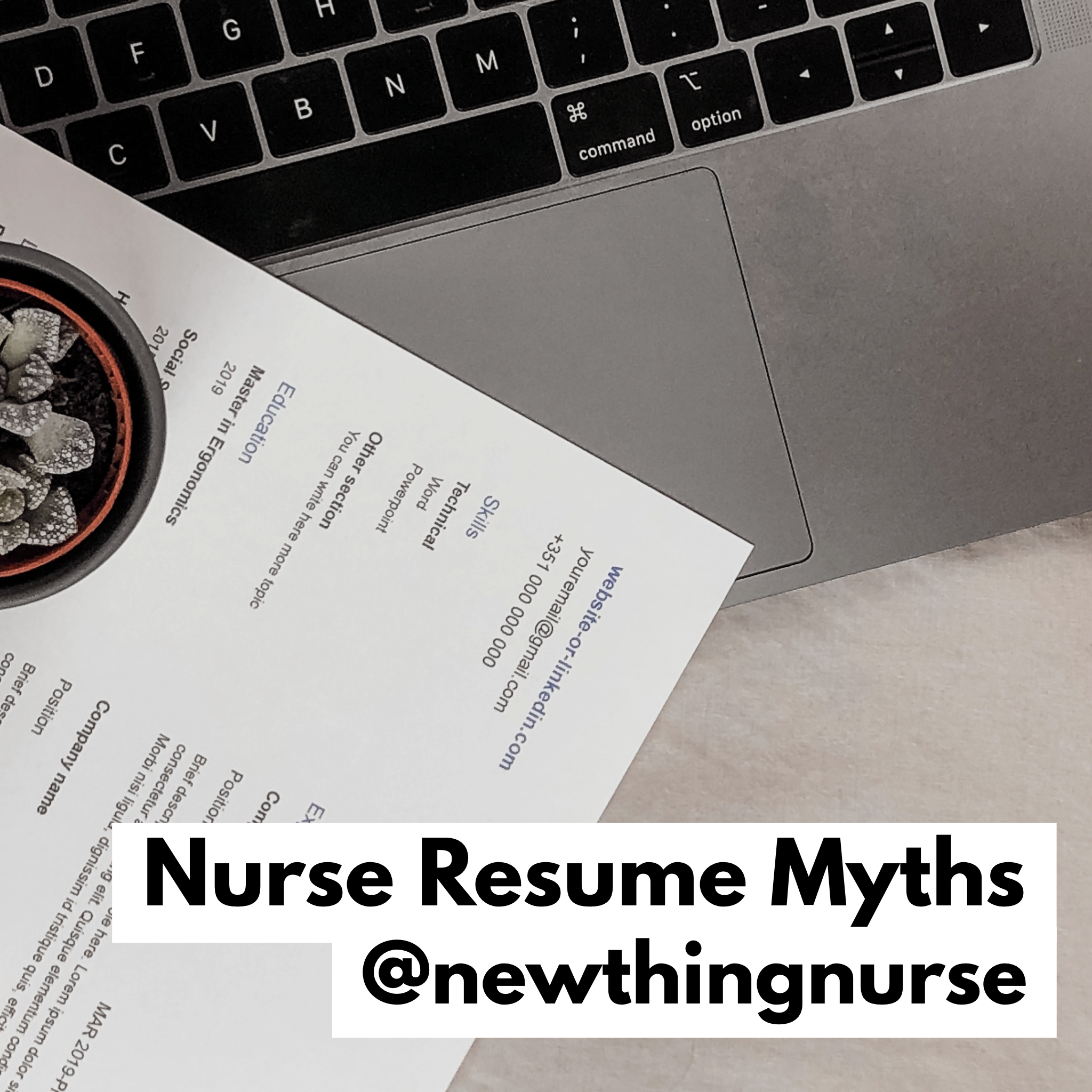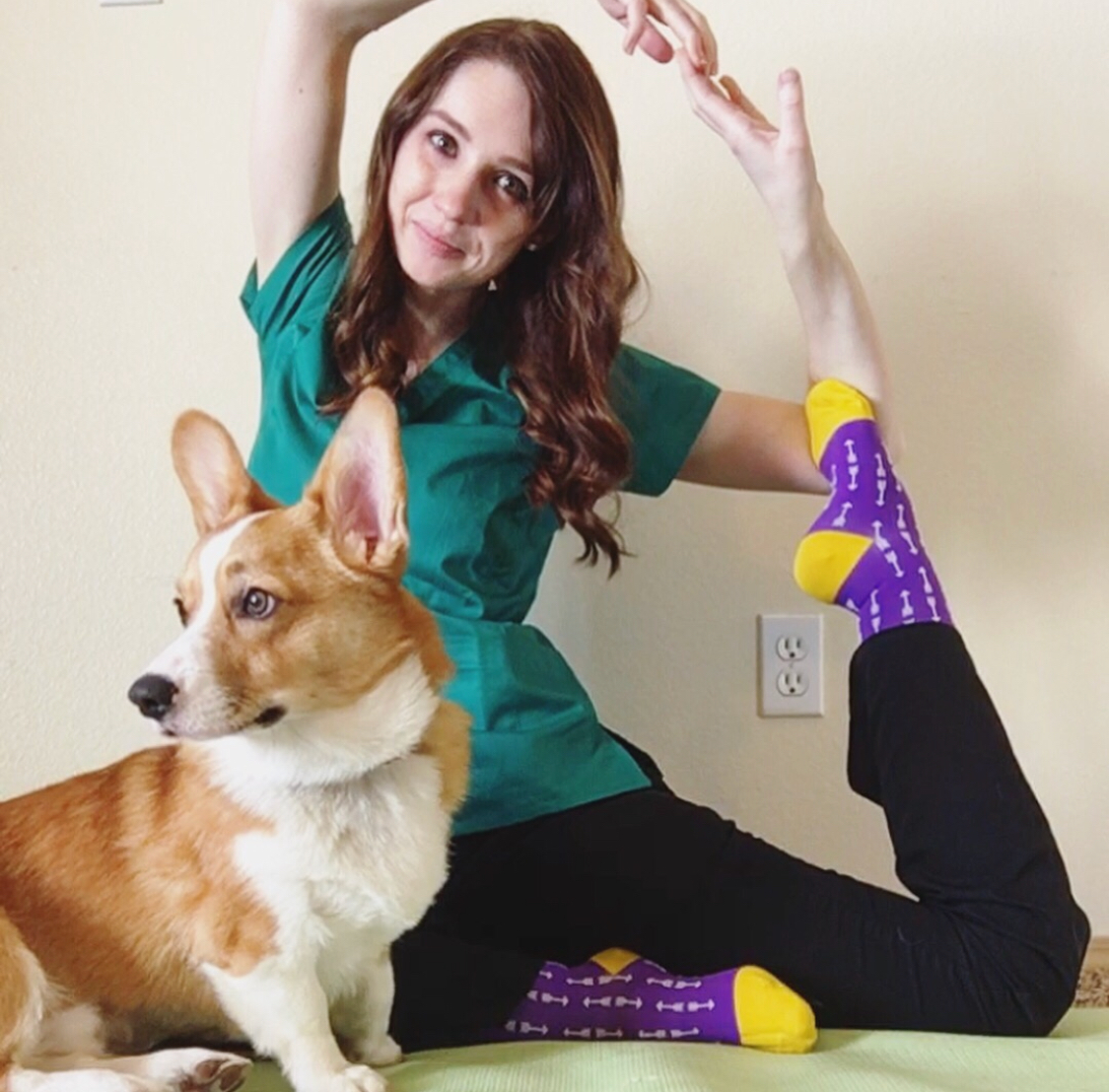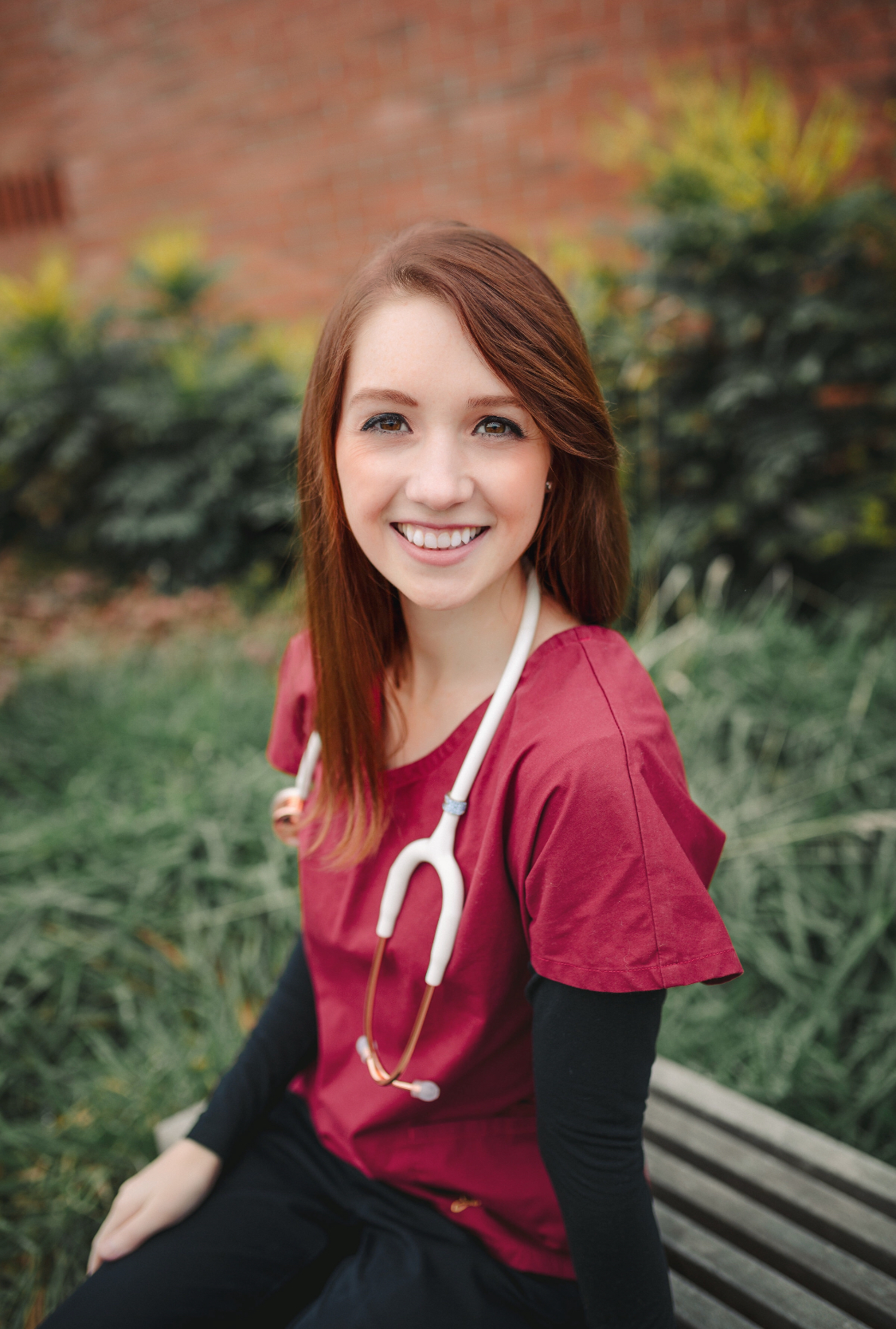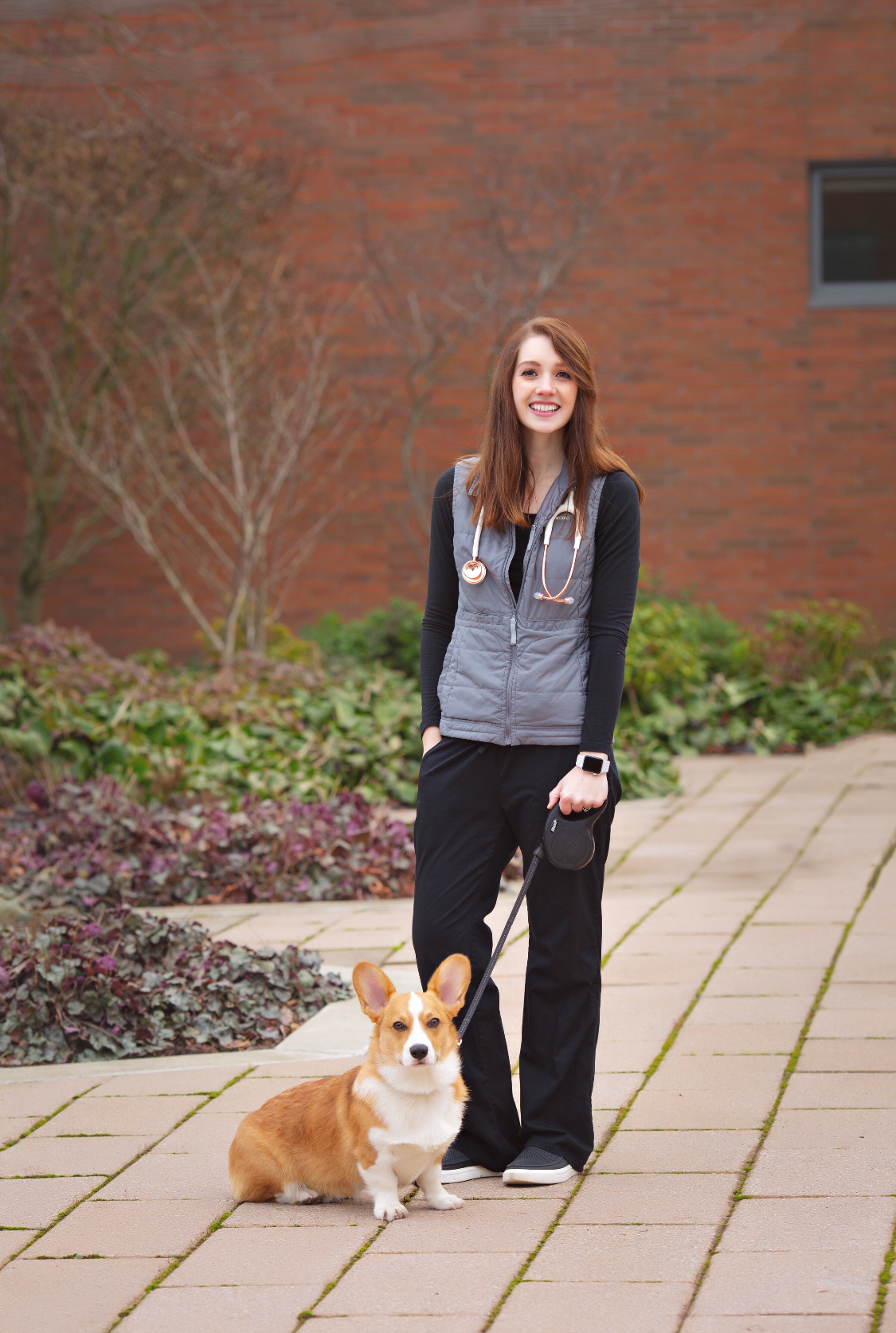Sarah @ New Thing Nurse (NTN): ANNA! I am so excited! Can you introduce yourself to our New Thing Nurse readers?
Anna Rodriguez (AR): Hello! I'm Anna Rodriguez, I'm a critical care float pool nurse in Washington state! I've been a nurse for 10 years now (which seems crazy), and I've had a variety of roles in that time: bedside nurse in med/surg, telemetry, CVICU and then as a nurse manager in CVICU, then I transitioned back to bedside care as a travel nurse and then to my current job. In the future, my plan is to pursue a masters in nurse education. Through all the different jobs I've had, I discovered I find a lot of job satisfaction when I'm in a supportive role, helping others learn new things or helping make their jobs or lives a little easier. So, at the moment, I'm still working as a full-time nurse and started a blog on the side focused on nurse burnout reduction and prevention.
NTN: The New Thing Nurse Blog is all about learning from each other by sharing our professional journeys. How did you fall into nursing? And what area of nursing did you start in?
AR: I’m sort of an anomaly. I figured out what I wanted to do pretty early on and stuck with it, no changes in my major during college! I was in 6th grade and my best friend's mom worked as a CNA and her sister was a nurse, and so she introduced the idea to me. At the time, we envisioned ourselves in a pediatric clinic, playing with babies and kids all day and maybe having to clean up some vomit now and then. All these years later, we both became nurses but both ended up preferring to work with adults! But during high school, I made sure to do some volunteer work at the local hospital so I could be exposed to the environment and make sure I enjoyed it. I would help transport patients around to procedures or to their vehicles when they were discharging, and I found that I really like interacting with patients and being helpful. Nursing is a really good fit for me. I'm so glad I ended up choosing this path.
NTN: The focus of New Thing Nurse is supporting nurses as they find their "new thing." What made you explore nursing away from the bedside? And what was your first "new thing"?
AR: I believe bedside nursing has a bit of a shelf life, at least for me. I admire the nurses who are able to make a career out of bedside nursing, but I'm at the point now where I'm ready to branch past that that and into a non-traditional nursing area, like nurse blogging and education. That's probably what I'd classify as my first "new thing." Although, I'm always looking for opportunities to grow as a nurse, whether it's by attending a conference or volunteering on a committee!
NTN: What helped you make that transition into your "new thing"?
AR: First and foremost, I have an amazing husband who always encourages me to do new things and is incredibly supportive. I've also found an amazing nurse community on social media, and we're always encouraging and learning from each other. So definitely find your people who cheer you on. Second, I'm always staying curious and trying to learn new things and stay challenged. From a practical perspective, if you're a nurse who wants to start a blog, I highly recommend the book "The Nurse's Guide to Blogging: Building a Brand and a Profitable Business as a Nurse Influencer" by Kati Kleber (Fresh RN) and Brittney Wilson (The Nerdy Nurse). It's so, so good.
NTN: Do you have any tips for anyone out there who might be considering jumping into a "new thing" of their own?
AR: Don't wait until it's a "good time," there's always something going on that will make it inconvenient. You will find time for the things that matter to you. With that being said, it really helps if your new thing is something you're passionate about! Something that you think about non-stop, dream about at night, and talk to all your friends about. Pick THAT new thing, and you'll find time for it.
NTN: Your slogan says you're passionate about "helping nurses keep their spark!" What drives your work to help the nursing community fight nurse burnout? Did you have a personal experience with nurse burnout?
AR: My drive and passion for fighting nurse burnout definitely comes from a personal experience. I was working as a nurse manager for two years and during that time, I witnessed burnout in my staff and went through my own experience simultaneously. I was the manager when we implemented our new Extracorporeal Membrane Oxygenation (ECMO) program with nurses running the machine at the bedside. It tested us in a lot of ways, physically and emotionally. These are really sick patients who require a 1:1 nurse to patient ratio (sometimes 2 nurses for 1 patient!) and we were working extra shifts to account for this staffing matrix that we weren't anticipating. And because we were seeing sicker patients, there was a lot of moral distress and compassion fatigue occurring. I was considered a "working manager" and would frequently work full or partial shifts at the bedside to supplement the staffing needs while still doing my manger role. I worked some nights when we didn't have a charge nurse, I came in on a weekend for a family conference and missed a funeral for a very special long term patient of ours. We started experiencing nurse turnover (mostly on night shift) for a variety of reasons: interpersonal relationships with physicians, scheduling issues, the acuity of the patients, etc. I realized pretty quickly that I was putting in way too many hours and that my personality made it difficult to let go of a lot of the issues when I walked out the door. I would stress about conversations I needed to have the next day with staff or patient's families. It wore on me physically, mentally, emotionally and I was burned out within two years. I knew transitioning back to bedside nursing would help (at least from a time management perspective) so I helped train my replacement and moved on to travel nursing. It's been almost two years since I quit managing, and I'm still recovering from that experience. I share all my burnout tips on my instagram page (@the.burnoutbook) and on my website and blog, www.theburnoutbook.com.
NTN: If you could give our readers your top tip or tips towards avoiding burnout, what would they be?
AR: I’m going to link to one of my first blog posts, "What to Do When You're Starting to Feel Burnout." It covers the first steps you should take if you suspect you're in that chronic state of physical/mental/emotional exhaustion that we call burnout.
First, talk to someone who you trust. Not only can it help you feel a little less alone when someone else knows your struggles, but it can help provide perspective. Second, write your experience down. Reflective journaling can help you process emotions and deal with negative things. But most importantly, I love writing down the positive experiences: the patient thank you, the compliments from peers, the positive and humorous interactions that you have as a nurse. The Burnout Book started as a little notebook where I documented those positive things so that when I had rough days and felt burned out, I could go back and read through the book and remember why I do what I do.
The last tip is all about self care, which can take many forms. It can simply be saying "no" when the staffing office calls to try and get you to work an extra shift. It can be doing things on your days off that are relaxing or energizing. It can simply be spending time with loved ones. I highly recommend setting healthy work boundaries and know what your limits are. That can go a long way.
NTN: I love nursing professional organizations. You seem very involved with the American Association of Critical-Care Nurses (AACN). What can you tell our readers about the AACN, and how it has enhanced your nursing career?
AR: One of my favorite “new things” I've done recently has come about because I'm a member of a nursing organization, AACN (American Association of Critical Care Nurses).
The AACN is a national organization that creates a community of acute care and critical care nurses. There are a bunch of perks to being a member! You get access to a ton of continuing education, they have several journal publications that come in the mail, they provide discounts for certification tests and study material, they hold an annual nursing conference where you can meet nurses from across the nation (and around the world!), and a whole bunch of other online resources. There are other nursing organizations you can become a member of with access to similar things. This is the organization I chose 8 years ago because I was in a Telemetry unit with plans to go into critical care and it made sense at the time.
More recently, I've had the opportunity to be a volunteer on a committee to help create questions for a nursing certification exam, and I've been a social media influencer for their national nursing conference! I'm amazed at all the opportunities that have come because I'm apart of this organization!
NTN: Your IG account is full of videos of you doing yoga, often with your adorable dog Walter. How does yoga help you? Do you incorporate yoga into your nursing practice?
AR: I’ve always enjoyed yoga from an activity standpoint. I love testing my flexibility and stretching, it's very relaxing. After going through my burnout experience, I've found a huge benefit from yoga because you are practicing breathing techniques and meditation to quiet the mind while being active. My mind used to be so distracted with what I had to face at work that I was constantly in a state of anxiety and even experienced what I'd call a panic attack. Yoga helps refocus my thoughts and bring them to the present instead of being fixated on things outside my control. But man, it takes time and practice. You can’t flip a switch. It takes time to retrain your thought patterns.
NTN: Do you have any "new things' on the horizon? New Thing Nurse wants to know!
AR: “New things” on the horizon: moving to a new city, I'll be getting a new job at that time, continuing to work on building The Burnout Book community online and collaborate with others! In the next few years, I hope to pursue my masters degree in nursing education as well.
NTN: Do you have any other advice for our readers?
AR: There are many things that can contribute to burnout that are outside of our control: staffing ratios, meaningful recognition, leadership support, etc. But what I suggest is find the things that ARE in your control and develop a self-care plan that works for you! Maybe it involves meeting your social needs by going out to lunch with a friend a couple times a month. It may look like finding new and fun ways to be active, like taking a barre class or going on a hike. Maybe it will come in the form of counseling, assertiveness training, practicing saying “no”, changing jobs, or getting a medical provider to help you with your physical and mental needs. You can't pour from an empty cup. Put your own oxygen mask on first.
Y'ALL - DOESN’T SHE GIVE THE BEST ADVICE?
Now - check out the Anna & Walter cuteness below!


























